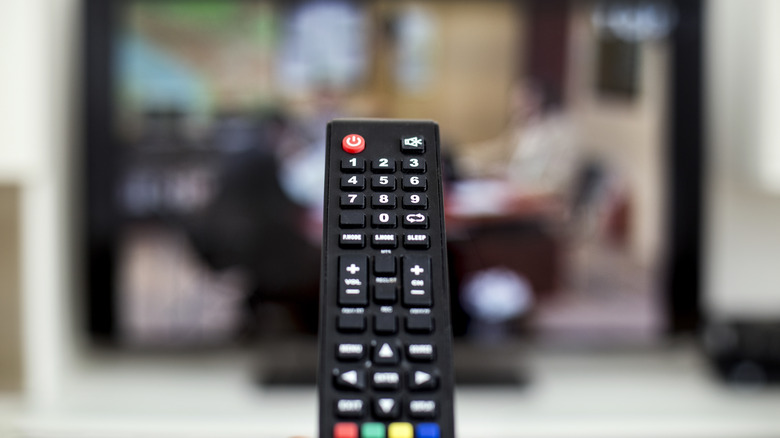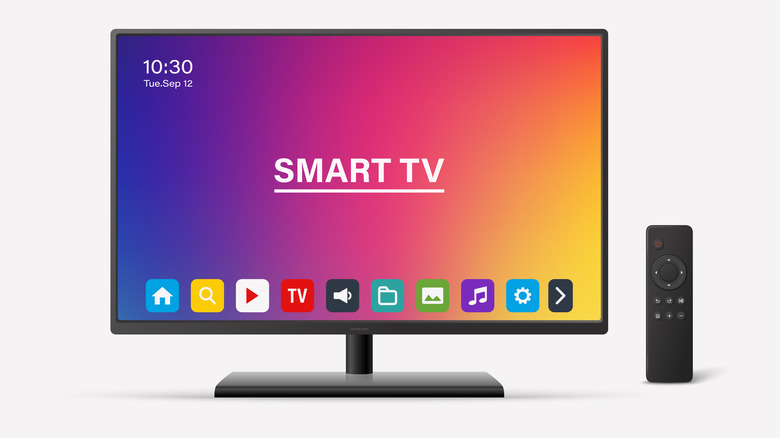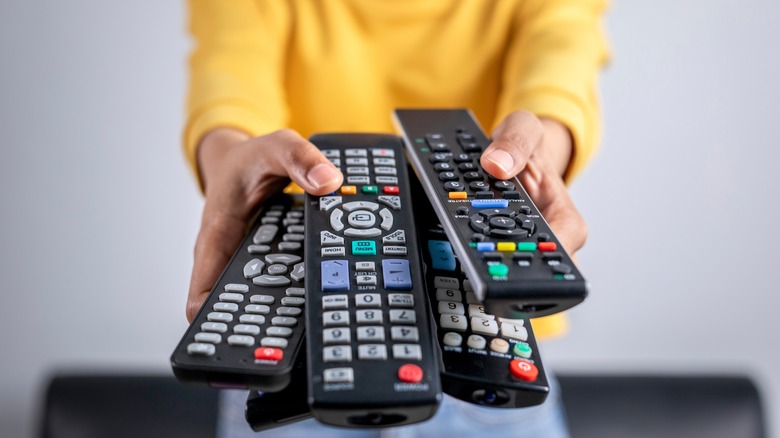Do Universal Remotes Work With Smart TVs?
It's happened to all of us. You sit down on your couch with a snack, ready to binge your favorite TV show, only to realize that the remote is missing. You tear apart the couch, peer under chairs, and maybe even check that pile of your children's toys in the corner, sometimes to no avail. The remote has joined the rogue socks and wandering water bottles that have ended up who-knows-where. You may give up and head to the store for a universal remote.
Modern TVs, however, are smart. They can't do arithmetic, but they are able to connect to the internet without a streaming device like a Roku or Apple TV. They also have an operating system that allows you to easily access different streaming platforms. Plus, are much more complicated than the traditional TVs that those of us over the age of 20 likely watched as children. Will a universal remote work on these modern TVs?
The simple answer is yes, a universal remote should work with your smart TV, but it may have limited capabilities. This is partly because many smart TV remotes connect via Bluetooth, while universal remotes often use the older infrared, or IR, technology.
Will any universal remote give me full control of my smart TV?
Bluetooth reigns supreme over IR because the remote will work from further away, doesn't require a direct line of sight, and offers more complex controls, such as voice command. Most smart remotes also offer those helpful shortcut buttons for commonly used apps like Netflix and YouTube. Some universal remotes will offer similar buttons and some won't, so if you use those shortcuts frequently, you'll want to look for a replacement remote that offers that functionality. Also check the product reviews, as some users complain that those buttons don't work with their TVs.
If your smart TV has Bluetooth connectivity, you can easily connect a universal Bluetooth remote. Instead of a code, you go to your TV settings to connect a new remote or accessory. Then, follow the prompts or consult the instructions that came with your new remote in order to pair it with your TV. Bluetooth remotes may offer more functionality than IR remotes, making life a little bit easier if you've lost your original remote for good.
If you already have an infrared universal remote at home and don't want to bother buying a new one, an IR remote should work with a smart TV. However, it likely won't be able to access all of your television's features. The remote will have pre-programmed codes that match different TV brands and devices. You'll need to find the instruction booklet that came with your remote to pair it, or find instructions online.
One remote to rule them all
Many of us grudgingly purchase a universal remote because we've misplaced the original, but that's not their only use. Universal remotes can also be used to control more than one device, meaning users can consolidate multiple remotes for several devices into one remote. For instance, the Samsung One Remote Control can be used to control not only your Samsung TV, but other connected devices, like gaming consoles. It's also easy to connect and offers one button to access your favorite streaming services. This remote is only for Samsung TVs, but there are others available that work on different brands.
When shopping for a universal remote, remember that universal doesn't always mean for every TV. Check the packaging or product description to see if your brand of TV is listed as a compatible device. If you have a newer TV, you may be able to skip the universal remote altogether and brandish your smartphone instead. Some manufacturers like Apple TV and LG offer apps that you can download to your phone that will control your TV. This may get a bit cumbersome, however, or frustrate others if you live in a multi-person household.


